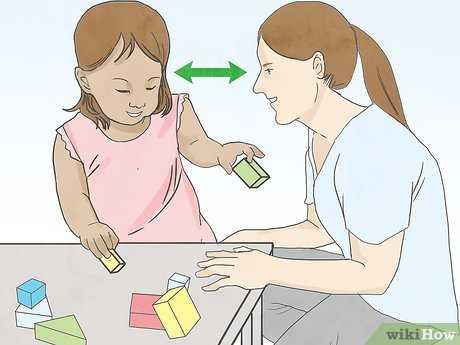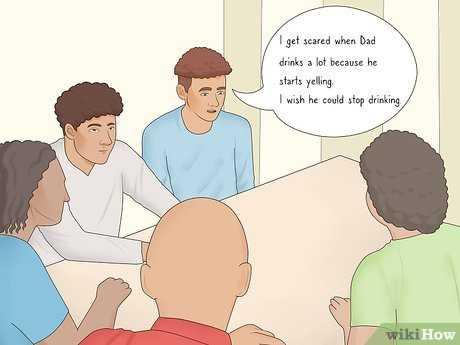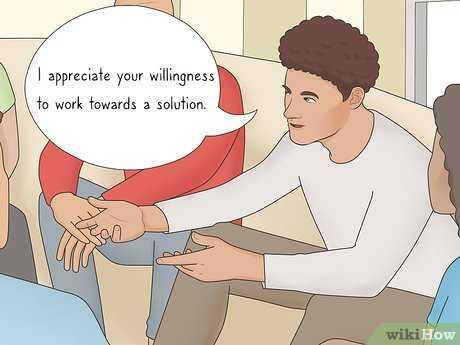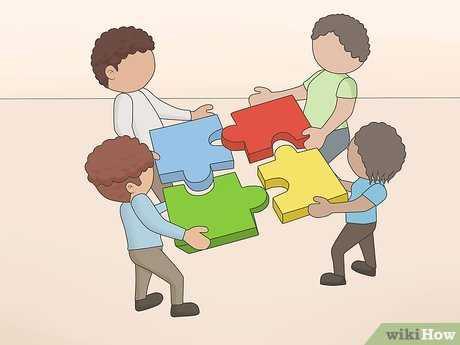Explore the World's Best Ideas
Join today and uncover 100+ curated journeys from 50+ topics. Unlock access to our mobile app with extensive features.
Being Involved
The relationship between a parent and a child is among the most significant in a person’s life. As one of the earliest connections a child has, the parental relationship sets the bar for everyone thereafter. Positive parent-child bonds foster autonomy, curiosity, self-esteem, and better decision-making skills. Improve your relationship with your child by getting involved with their lives and building stronger communication. Also, learn how to adapt your parent-child relationship with time.
38
152 reads
Get on their level
You can enrich the relationship you have with your child by connecting with them in an age-appropriate way. Teach, work on projects, and play on a level that your child is familiar with. This helps them bond with you and makes you seem more approachable.
- If you have a toddler, get on the floor and build a city out of blocks. If you have older adolescents or teens, join in on a round of video games.
- You are more likely to spark conversation during these types of activities than by trying to get them talking at the dinner table
32
76 reads
Emphasize the importance of family time
While your children need to know that you acknowledge and respect their individuality, it also counts when you uplift the family as a unit. Make family time a regular and special part of your routine.
- Eat meals together most nights of the week, and have everyone share their peaks and pits (i.e. best and worst moments) of the day. Go to sporting events, movies, or community gatherings together.
31
64 reads
Dedicate one-on-one time for each child
Spending time together as a unit is essential. You should also set aside time to focus on each individual child. Prioritizing one-on-one time helps you form a connection with each child. Plus, it also helps you focus on each child’s individual strengths and talents.
- Find a shared hobby to engage in with each of your children. Maybe you will teach one kid how to fish on weekends. Or, work with another on perfecting a piano performance. Free up part of your weekly schedule to build a special relationship with each child
31
54 reads
Have everyone state what they truly mean
Direct communication is essential to effective conflict resolution. Each party should use “I” statements to clearly state your needs, wants, and concerns.
- Remember, you are aiming to de-escalate the conflict and work towards a solution. Using “I” statements allows everyone to express themselves while showing respect for others listening. Making an “I” statements allows each person to take ownership of what they are feeling, and suggest a remedy for the problem at the same time.
- Examples of “I” statements include: “I am worried that our family is falling apart. I would like us to work things out.” or “I get scared when Dad drinks a lot because he starts yelling. I wish he could stop drinking”.
20
23 reads
Stay in touch with academics, friendships, and extracurriculars
Parents who have good relationships with their children are involved in their lives. You can’t expect to have a strong bond with your children if you simply say “good morning” and “good night” each day.
- It’s understandable that you’re busy juggling work and other responsibilities, but you should also make an effort to get to know your kids and learn about what’s happening in their lives.
- If you have some free time, offer to volunteer at school, coach a softball game, or meet with your children’s teachers regularly to stay updated on their academic performance.
- Sit down with them as they do homework. Help them practice their lines for the school play. Invite your kids’ friends over so you know what kind of influences they are around
32
46 reads
Kid around
Let your kids know that things don’t always have to be so serious between you. Of course, you want them to respect your authority, but you also want to laugh with them. A sense of fun can liven up their lives and build fond memories.
- Make crazy faces or noises to supplement mealtimes or playtime with smaller children. Act silly with adolescents by pulling pranks or telling jokes.
32
59 reads
Focus on the issue at hand
When disagreements occur, people tend to bring up any and every unresolved issue they have ever encountered with the other parties. This impedes conflict resolution and blurs the point of the discussion.
- Strive to uncover what is important about the current problem. Building a case or bringing up old misdeeds will not assist you in resolving this issue.
21
29 reads
Seek professional advice
If you cannot resolve the problem on your own, consult with a family therapist who can offer you practical advice about managing your family’s problem.
19
31 reads
Listen without interrupting
To reach an agreement during the family conflict, listening is imperative. Only by actively listening to each party can you understand what he is trying to communicate. Active listening involves cuing in on the other person’s tone and body language, allowing him to speak without interruptions or remarks, and paraphrasing what was said afterward to ensure you understood correctly.
- Effective listening allows the other person to feel heard, motivates the other parties to want to listen to you, defuses arguments and strong emotions, and rebuilds the relationship during the conflict.
22
13 reads
Validate and show respect for each person’s point of view
Validation pertains to showing another that you recognize, value, and accept his thoughts, opinions, or beliefs.[2] Of course, your own opinions may differ greatly, but using validation demonstrates that you see the other as a human, worthy of integrity and respect.[3]
- Validate your family members by saying something like “I’m really glad you felt comfortable enough to share this with me” or “I appreciate your willingness to work towards a solution”.
20
21 reads
Decide on a solution together
Once everyone has shared their needs, wants, and concerns, then strive for a compromise. Consider all the suggestions that each party has provided and look for a middle ground. Everyone present should feel good about the proposed solution. If necessary, develop a contract or written agreement outlining how you will manage the problem.
20
40 reads
IDEAS CURATED BY
MA in Engish language. Interested in literature, intellectual issues, technology, reading books, blogging, digital marketing, parenting, translating, and creating content
Other curated ideas on this topic:
6 ideas
How to Avoid Passing Anxiety on to Your Kids
childmind.org
5 ideas
How to Have a Good Family Life
wikihow.com
5 ideas
Childhood Experiences That Lead to a More Purposeful Life
greatergood.berkeley.edu
Read & Learn
20x Faster
without
deepstash
with
deepstash
with
deepstash
Personalized microlearning
—
100+ Learning Journeys
—
Access to 200,000+ ideas
—
Access to the mobile app
—
Unlimited idea saving
—
—
Unlimited history
—
—
Unlimited listening to ideas
—
—
Downloading & offline access
—
—
Supercharge your mind with one idea per day
Enter your email and spend 1 minute every day to learn something new.
I agree to receive email updates











